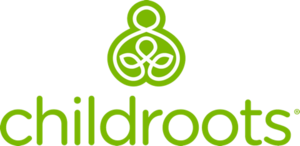The Importance of Proper Nutrition in Early-Childhood Education
As part of the ChildRoots Way, we create a foundation for healthy growth, learning, and development at each of our Portland learning centers. This foundation is first set in the classroom by establishing positive learning environments around our art & science-based curriculum. How this foundation is set outside the classroom is just as important as it is inside. One way we accomplish this is through our outdoor play program, which promotes active learning, social development, and builds bonds between children and their community. Another is through our meals and nutrition program, which seeks to provide children with the nutrition they need to grow mentally and physically.
Healthy eating is crucial in early childhood education, not only for the requisite healthy benefits but also because of its many academic benefits. Studies show that improved nutrition has a direct impact on academic performance, memory, and other positive learning behaviors. Children typically spend around 6 hours in school and/or primary care and get half their daily calories during that time.
In addition to the cognitive benefits of a healthy diet, the physical benefits during early childhood are many. Childhood obesity has doubled in the past 30 years, according to the Centers for Disease Control and Prevention. Positively though, this trend is on the decline as the CDC saw a 40% reduction in obesity for children aged 2 to 5, from 2003 to 2012. Recently, guidelines have been recommended by the USDA to implement science-based nutrition standards in schools. One example is the Smart Snack program, which was launched in 2016 and outlined that school snacks must either:
Be a grain product containing 50% or more whole grains by weight
Include protein food, dairy product, fruit, or vegetable as the first ingredient
Contain at least ¼ cup of fruit and/or vegetables
The food must meet nutrition standards for calories, sodium, sugar, and fats.
Beverages outlined in the program include:
Plain water (carbonated or not)
Unflavored low-fat milk
Unflavored or flavored fat-free milk and milk alternatives
At each of ChildRoots’ Portland Learning Centers, we provide lunch and two snacks daily. Our simple, communal approach to nutrition helps children learn healthy eating habits that will hopefully last a lifetime. The “Take 5” meal plan is centered around organic, vegetarian, and nut-free foods. All meals contain fresh fruit, vegetable, bean, grain, and dairy. Any produce we serve is fresh and either roasted or steamed. The seasoning on grains and beans is kept to a minimum.
Each child eats communally to promote social development and create positive mealtime experiences. All foods are served in communal bowls, with children and teachers all eating together. Once mealtime is over, children are encouraged to participate in the clean-up process and to compost any spilled food.
To learn more about ChildRoots’ meals and nutrition program or other features of our curriculum, contact us today at one of three Portland learning centers!

